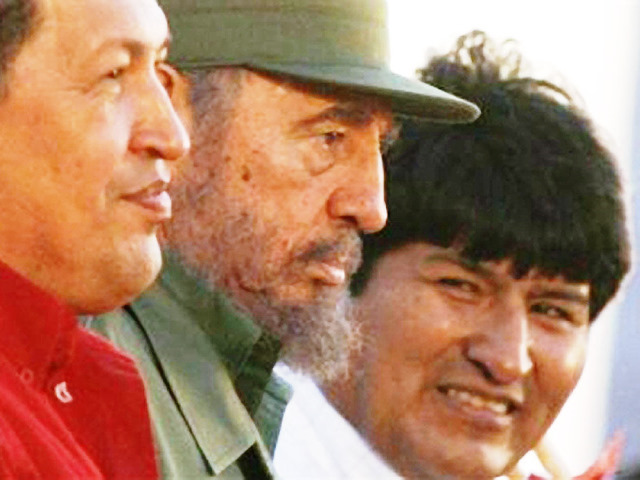
at the sacred place of Tiwanaku.
Photo: AFP
By Raul Burbano
October 13, 2008 -- Bolivian President Evo Morales has called for a national referendum on the country’s new draft constitution on December 7. The demand of the Bolivian people for a new and socially, politically and economically inclusive constitution is at the heart of the present political upheaval in that country.
Right-wing forces representing the country’s traditional ruling oligarchy have launched a secessionist movement to balkanise the country, in an attempt to block the constitutional referendum. They have organised murderous fascist gangs to terrorise the population.
They are backed by the US government, whose ambassador, Philip Goldberg, has recently been expelled from Bolivia for his support of the opposition and openly admitted interference in Bolivian political life.
On the other side the vast majority of the Bolivians, more than 67% of whom just voted support President Evo Morales in a recall referendum.
